State budget deficit in 2026 is equivalent to 4.2% of GDP
According to the approved Resolution, the National Assembly resolved that the state budget revenue in 2026 is 2,529,467 billion VND. Of which, the central budget revenue is 1,225,356 billion VND, and the local budget revenue is 1,304,111 billion VND.
In 2026, the remaining VND 23,839 billion from the local budget's salary reform fund until the end of 2025 will be used to transfer to the local state budget estimate for 2026 to implement the basic salary of VND 2.34 million/month.

Total state budget expenditure is 3,159,106 billion VND. Of which, the central budget is 1,809,056 billion VND, including the estimated 238,421 billion VND to supplement the local budget balance, the estimated 187,175 billion VND to supplement the local budget with target, the estimated 53,554 billion VND to supplement the local budget to ensure the implementation of the basic salary of 2.34 million VND/month. Local budget expenditure is 1,350,050 billion VND, excluding expenditure from the targeted supplement, balance supplement, supplement to ensure the basic salary of 2.34 million VND/month.
The state budget deficit in 2026 is equivalent to 4.2% of gross domestic product (GDP).
The National Assembly requested the Government to direct a review of the use of central budget funds assigned to ministries, central and local agencies to implement policies and regimes for cadres, civil servants, public employees, workers and armed forces in the implementation of the organizational arrangement of the political system, and by the end of 2025, if not fully used, to recover and return the accumulated funds for salary reform of the central budget.
Allow the use of the 2025 state budget's regular expenditure savings to build primary and secondary boarding schools in land border communes. Assign the Prime Minister to allocate this capital when the allocation conditions are met according to the provisions of law. At the same time, allow the transfer of the 2024 central budget revenue increase and the 2025 state budget's regular expenditure savings to build primary and secondary boarding schools in land border communes that have not been fully used in 2025 to 2026 for continued implementation.
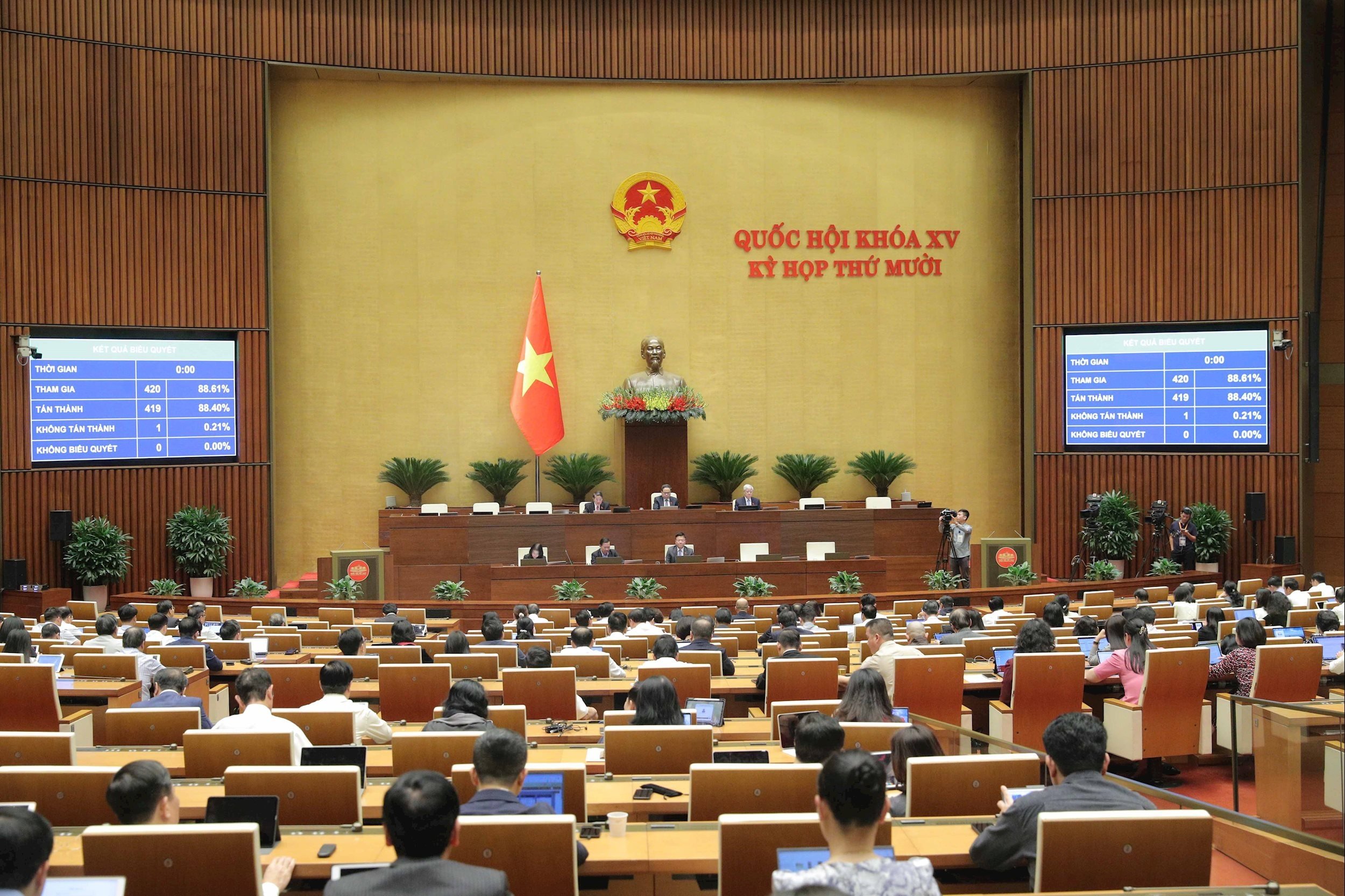
The Government is assigned to proactively manage fiscal policy, coordinate synchronously, effectively and harmoniously with monetary policy and other policies, promptly respond to complex fluctuations in the domestic and foreign situation, maintain macroeconomic stability, ensure major balances of the economy, and be determined to complete socio-economic development goals and state financial and budgetary tasks.
In management, strive to increase state budget revenue in 2026 by at least 10% compared to the estimated implementation in 2025. Resolutely implement solutions to strengthen revenue management, restructure revenue sources to ensure sustainability; expand revenue base; combat revenue loss, transfer pricing and tax evasion; trade fraud, especially in digital-based commercial activities; urge the collection of tax arrears; promote the implementation of tax administrative procedure reform; strictly implement legal provisions on transfer and lease of public assets, land allocation and land lease. Limit the issuance or submission to competent authorities for issuance of policies that reduce state budget revenue, except for international integration commitments, investment attraction policies and truly urgent cases.
From 2026, the Government will be able to proactively use accumulated resources for salary reform.
The National Assembly also assigned the Government to direct ministries, branches and localities to closely review the funding needs to implement the Party's policies, programs, tasks and projects that have been issued; only issue policies that increase state budget expenditure when really necessary, ensuring feasibility, efficiency, non-duplication, and conformity with the disbursement capacity and balance of the state budget. The agencies in charge of the National Target Program review and ensure that there is no duplication between the National Target Programs and no duplication with other programs, projects, regimes, policies and tasks with the same objectives arising in the area.
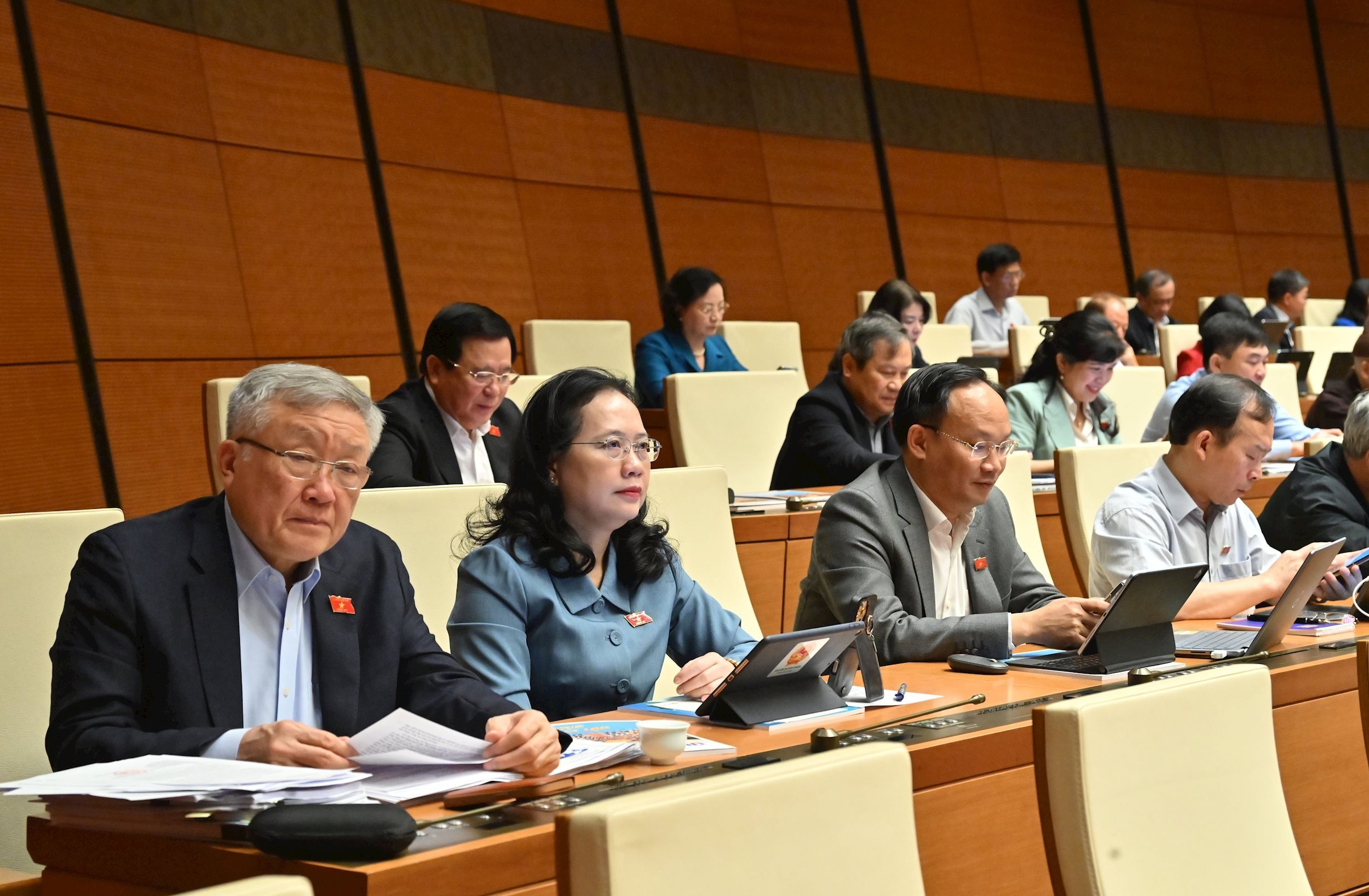
The Government directs ministries, central and local agencies to allocate and assign budget estimates in accordance with the decentralization of authority and the implementation of two-level government at the local level, ensuring the allocation of resources in line with assigned tasks. Improve the quality of investment preparation work, thoroughly overcome the situation of slow implementation of public investment projects and slow disbursement of public investment capital; resolutely transfer capital from slow-progressing projects to projects that are capable of implementation and disbursement but lack capital, and minimize the transfer of resources.
In 2026, the National Assembly allows to continue excluding some revenue items when calculating the increase in local budget revenue compared to the estimate for salary policy reform, including: One-time land rent collection advanced by investors for compensation, support and resettlement; revenue from handling public assets at agencies, organizations and units decided by competent authorities to be used for investment expenditures according to regulations; revenue from protection and development of rice-growing land; fees for visiting relic sites and world heritage sites; fees for using infrastructure works, service works and public utilities in border gate areas; environmental protection fees for wastewater; revenue from public land funds, revenue from profits and public assets at communes and revenue from renting and selling state-owned houses.
Assign the Government to review the budget for saving on regular operating expenses (salary and operating expenses according to the law) due to streamlining the payroll and reorganizing the apparatus to implement the 2-level local government model; allow localities to use this saved budget to supplement the salary reform source of the local budget.
From 2026, the Government shall proactively use accumulated resources for salary reform to ensure the implementation of salary, allowance and income regimes according to regulations.
Source: https://daibieunhandan.vn/giao-du-toan-phu-hop-voi-phan-cap-tham-quyen-bao-dam-bo-tri-nguon-luc-gan-voi-nhiem-vu-duoc-giao-10395510.html


![[Photo] Unique art of painting Tuong masks](https://vphoto.vietnam.vn/thumb/1200x675/vietnam/resource/IMAGE/2025/11/14/1763094089301_ndo_br_1-jpg.webp)



![[Photo] Unique architecture of the deepest metro station in France](https://vphoto.vietnam.vn/thumb/1200x675/vietnam/resource/IMAGE/2025/11/14/1763107592365_ga-sau-nhat-nuoc-phap-duy-1-6403-jpg.webp)

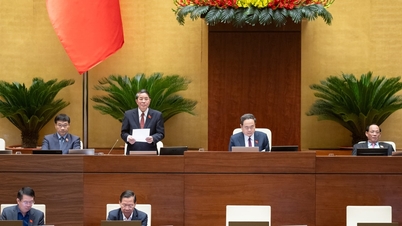




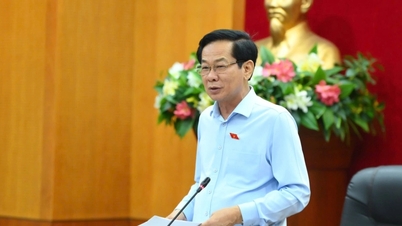






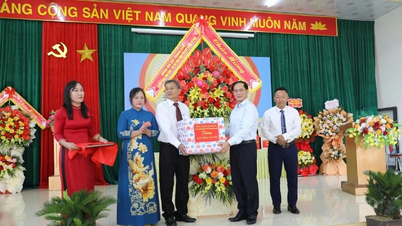
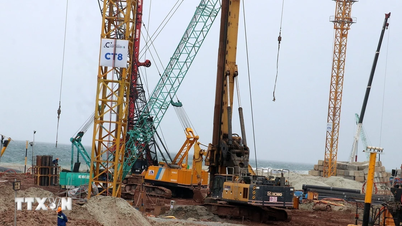

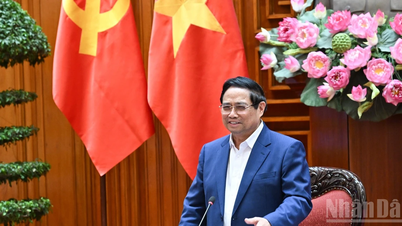







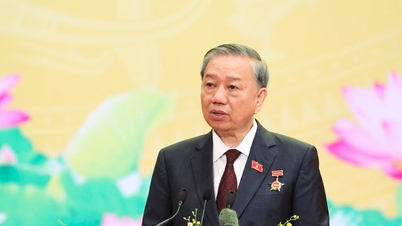



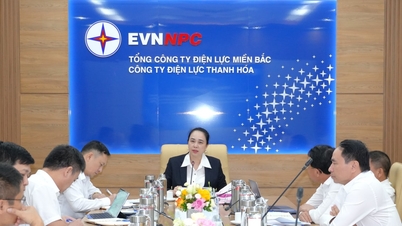

![[Photo] Special class in Tra Linh](https://vphoto.vietnam.vn/thumb/1200x675/vietnam/resource/IMAGE/2025/11/14/1763078485441_ndo_br_lop-hoc-7-jpg.webp)















































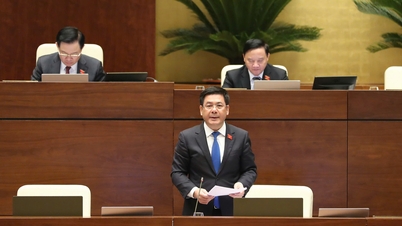






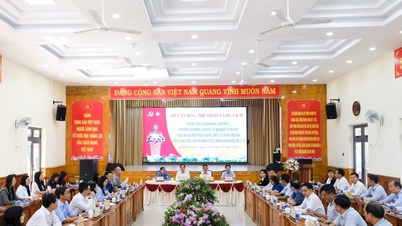



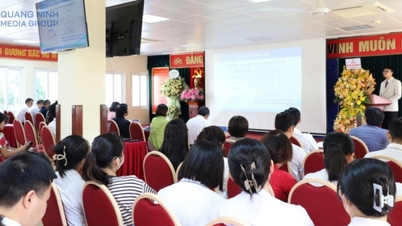














Comment (0)